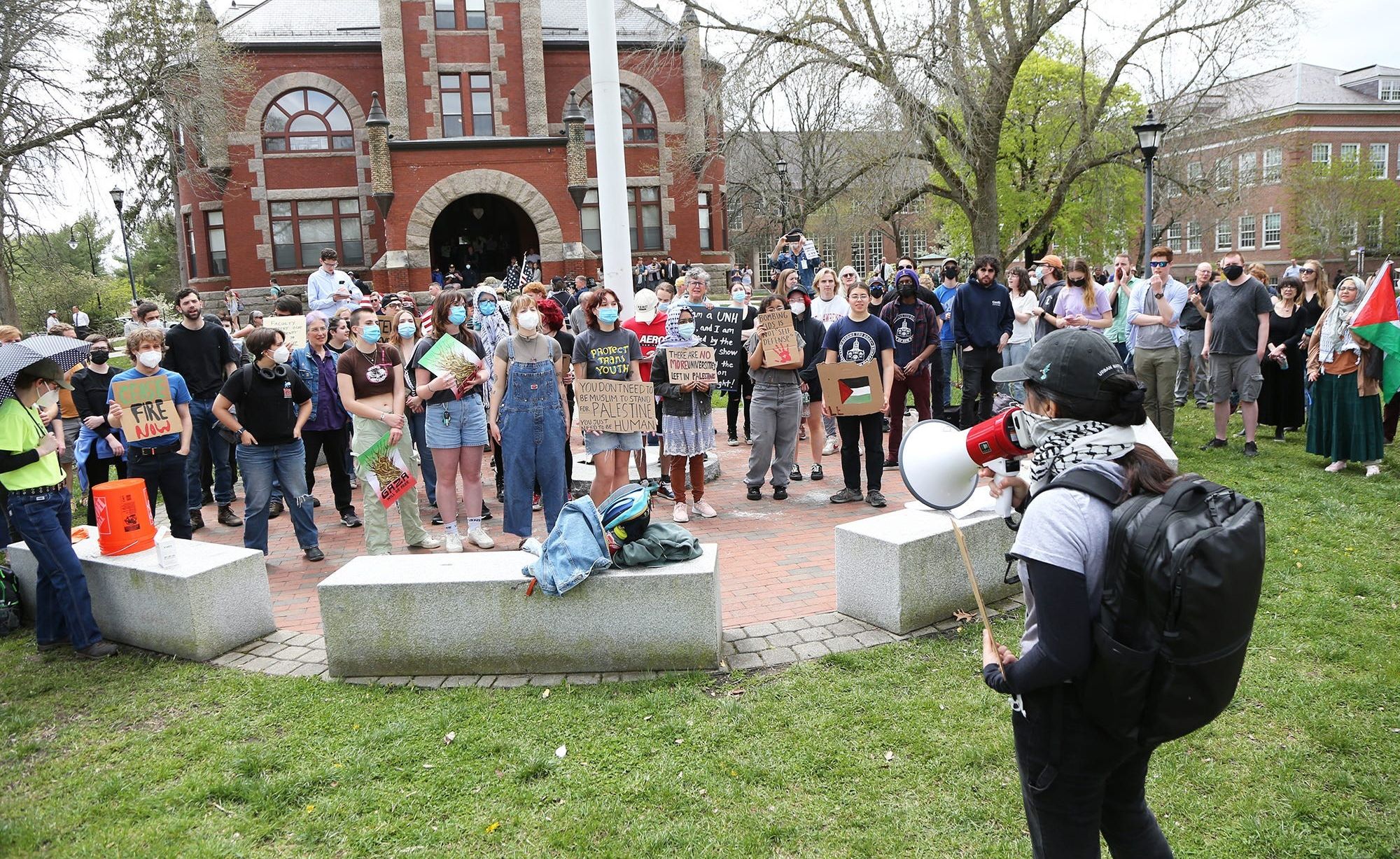In yet another example of Donald Trump announcing new policy via social media, the president has now pledged to crack down on “illegal protests” at universities, warning that “agitators” will be headed to jail or targeted for deportation.
Most likely, Trump’s Truth Social post is a reference to last year’s uprising of student encampments and protests at universities across the country in opposition to U.S. weapons and political support for Israel’s onslaught of Gaza that the International Court of Justice and every major human rights organization has concluded plausibly amounts to genocide. On the campaign trail, Trump already pledged to crush pro-Palestinian protests if they ramp up again, including deporting foreign national students who participate.
Many may see this and not be very alarmed. After all, peaceful protest isn’t illegal. But what many do not realize is that counterterrorism law gives enormously wide-ranging discretionary authority to the president, to law enforcement, and to immigration officials that could be used to squelch free speech and dissent.
For example: providing material support for terrorism is a federal crime. This may seem fair enough on its face. But the breathtaking scope of this provision becomes more clear once we see how the terms are defined. “Material support” includes the provision of “service,” “expert advice or assistance,” “communications equipment,” or “personnel” (including yourself). And the Supreme Court has confirmed that the support does not actually have to go toward any particular violent act that might be considered terrorism, only to a group that is designated as a Foreign Terrorist Organization (FTO) by the U.S. government, even if that support is otherwise lawful.
Hamas is designated as an FTO and those opposing U.S. and Israeli policy are often accused of supporting Hamas. Could peaceful pro-Palestine protesters be charged with materially supporting terrorism? This is exactly what the Anti-Defamation League was pushing for in the last wave of student protests when it urged universities to shut down and investigate Students for Justice in Palestine chapters for their role in organizing the activism. It is also what Rep. James Comer suggested in a letter he sent to Americans Muslims for Palestine in his capacity as the chairman of the House Committee on Oversight and Accountability, demanding documents and information.
Allegations of “material support for terrorism” have long been launched against peaceful pro-Palestine activists by those who disagree with them ideologically, including suggestions that such activism provides “services” to Hamas in the form of public relations or propaganda. The Supreme Court has been clear that independent advocacy remains protected by the First Amendment, but aggressive prosecutors could allege that activism is illegally “directed by” or “coordinated with” a designated terrorist organization by leaning on things like similar uses of language from both protestors and Hamas (there are already numerous civil lawsuits making this exact case.)
What about Trump’s pledge to deport foreign students who engage in protest? Immigration law contains enormously wide-ranging counterterrorism measures that deny foreign nationals entry or permit their deportation if officials determine that they “persuade[d] others to support a terrorist organization,” or “endorse[d] or espouse[d]” or “persuade[d] others to endorse or espouse terrorist activity.” These are the same stringent provisions that prevented Nelson Mandela from easily traveling to the United States, even once he became the leader of South Africa, until Congress passed a law in 2008 rectifying the embarrassing situation.
Many Members of Congress and state attorneys general were already urging the Biden administration to ramp up deportations of foreign student protestors last year using these provisions of the law. Now that the Trump administration has taken over immigration enforcement, we can easily imagine these “anti-terrorism” laws being relied upon to execute a sweeping revocation of student visas and mass deportations - all for peacefully protesting US and Israeli policies in Gaza.
It is almost a cliche by now that we are supposed to take bombastic statements from Trump “seriously, but not literally.” But, because of the massive power given to him by counterterrorism laws, we may actually want to take this one literally.
- Free speech crises loom with crackdown on Israel criticism ›
- When anti-war protesters are called national security threats | Responsible Statecraft ›
- Does Vance’s free speech defense in Munich not apply here? | Responsible Statecraft ›
- In Garcia, SCOTUS risks handing Trump a ‘loaded weapon’ | Responsible Statecraft ›
- ADL takes on shareholders questioning Israel arms sales | Responsible Statecraft ›
- The roots of Trump's wars on terror trace back to 9/11 | Responsible Statecraft ›
















